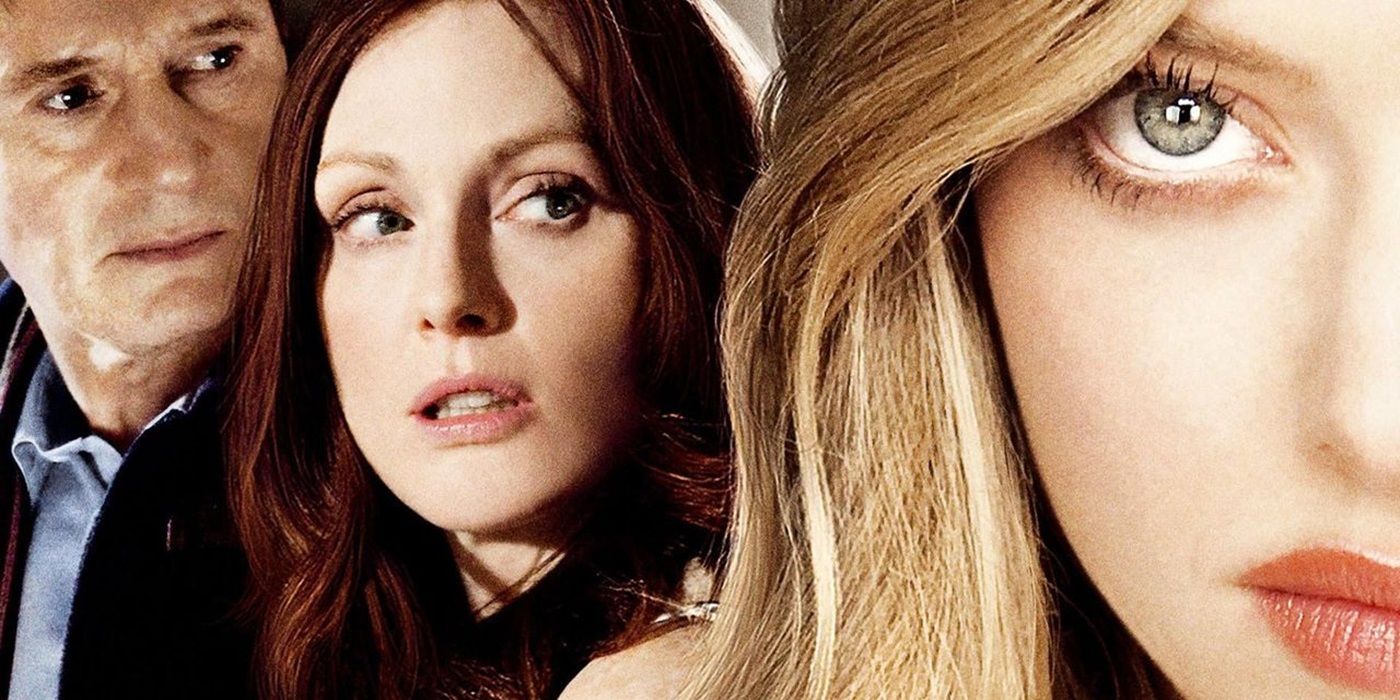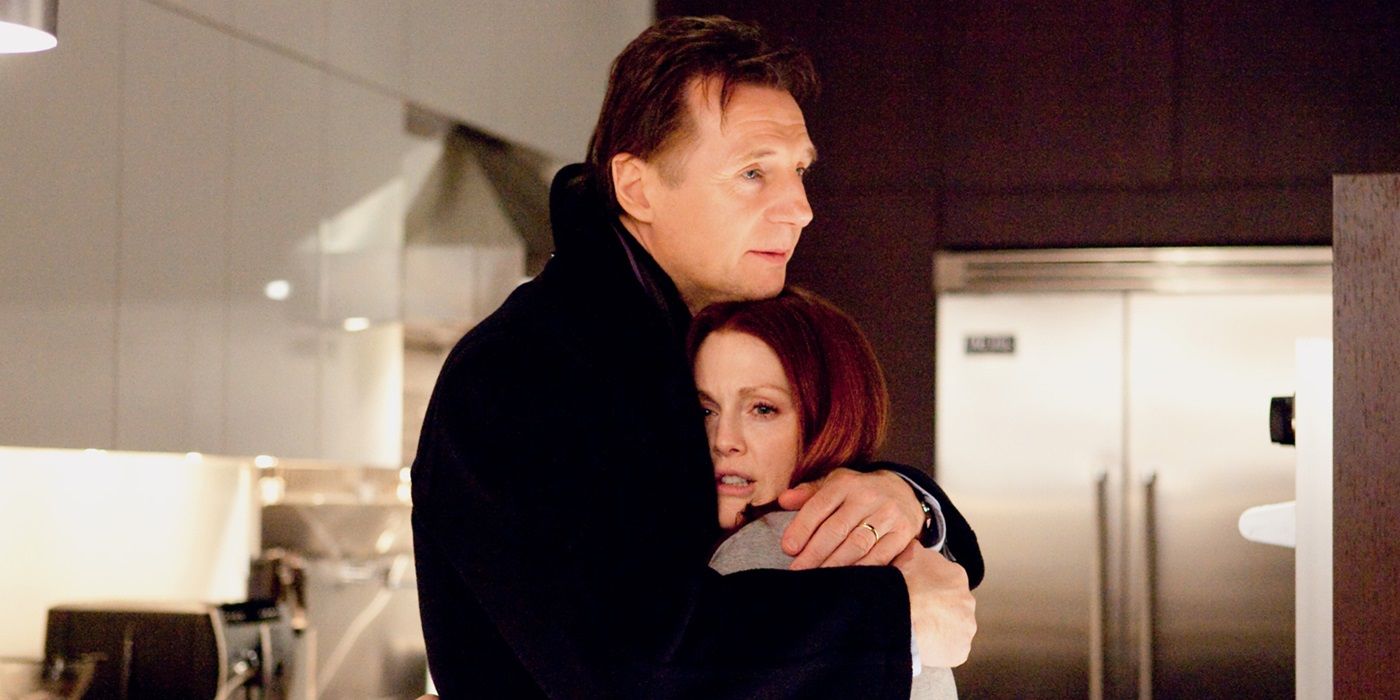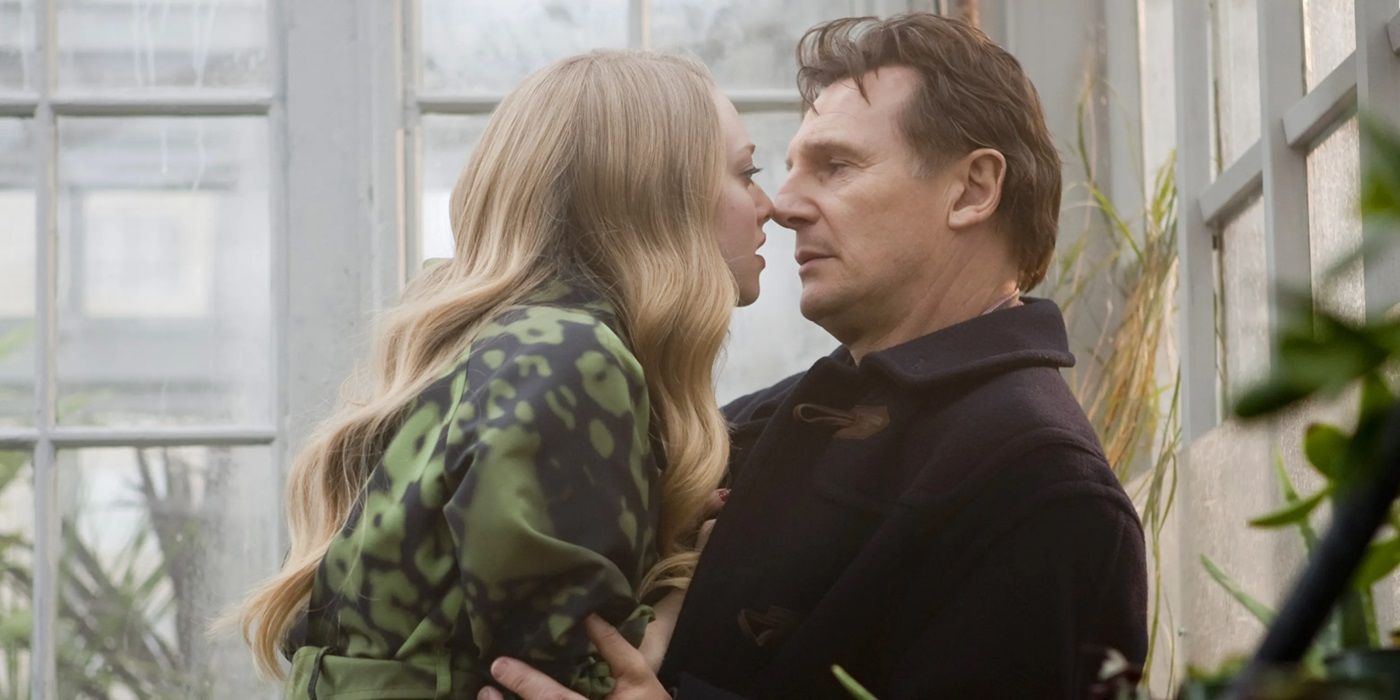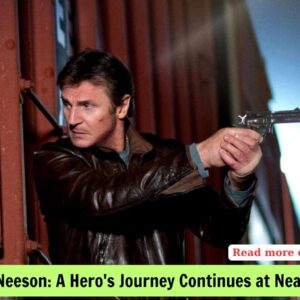Pop quiz: remember when Liam Neeson was truly vulnerable? A huge part of the appeal of his turn as an action star is his ability to add far more gravitas than anything on the page offers.

Those films tend to put Neeson in a good light. The gravitas comes from the complex but relatable characters – a man who either desperately doesn’t want to be in the situation he’s currently stuck in, or lives with agonizing regret from long ago.
It’s ironic that Taken, the film that redefined his legacy, would paint him as just an ordinary guy who happens to be a CIA agent and a badass, with no damaged background or real internal complexity to speak of. If that sense of inner complexity and vulnerability is something you’re looking for from Neeson.
This vulnerability was front and center in the undersung Atom Egoyan erotic thriller Chloe, which put Neeson’s masculinity under a deeply uncomfortable microscope.

What Is ‘Chloe’ About?
Catherine (Julianne Moore) is living a dream life, being a highly successful OB-GYN and happily married to her college professor husband, David (Neeson). It’s David’s birthday, and he’s flying back from one of his typical trips, and Catherine wants to surprise him with a party.
Sadly, it wasn’t meant to be, as he calls and tells her he has just missed the flight. When he finally arrives home, all seems well, until Catherine sees a flirtatious text on his phone from an unknown woman.

She immediately thinks that he’s cheating, despite no smoking gun evidence, and she doesn’t know what to do. That is until she meets Chloe (Amanda Seyfried), a professional escort with whom she develops a rapport, and hatches a plan.
She’ll hire Chloe to meet David, seeing if he will become enticed by her charms, and use that as proof that he’s a cheater. What starts out as amateur sleuthing will become something much more complicated as Catherine goes through an awakening that she never saw coming
The film opens with a juxtaposition of scenes. The first is Chloe describing her work process as an escort, how she molds herself to be whoever her client wants her to be.
She emphasizes how important the power of words can be, and how effortlessly they paint a picture that will appeal to the client’s fixations.
The second scene is Catherine having a consultation with a patient who rarely, if ever, had a real orgasm, and she breaks it down on a level of cold rationality: that it’s just a muscle contraction that brings the body a feeling of pleasurable sensation.
In her words, “there’s nothing magical about it.” With this opening salvo, we get the fundamental thesis that the film will play on: sexuality not as a raw physical act, but a product of intellectual and emotional creation, and how easily our minds will latch onto whatever connections necessary to make a fantasy feel real. But if the fantasy becomes reality, or if a person wills it into becoming real, what then?
News
“Liam Neeson’s Surprise: Shocking Appearance Raises Eyebrows on the Street”
Liam Neeson, 63 years old, famous actor with a series of roles in action movies: “Taken”, “Non-stop”… appeared thin and haggard on the streets of New York…
“Liam Neeson on Embracing Action Roles at 70: ‘I’m Getting Away with It’”
Liam Neeson is looking back at becoming an unlikely action star with 2008’s Taken Liam Neeson’s age isn’t getting in the way of his status as an action…
Liam Neeson refuses superhero movies, still acts in action movies
Although Liam Neeson has no plans to star in any more superhero movies, he said he will continue to participate in action movies. (Photo: The Playlist) Liam…
“Liam Neeson Delves into ‘Honest Thief’, Reflects on ‘Darkman’ Memories, and Addresses the Star Wars Reunion Rumors”
He also reveals which of his films he’d love to have revisited with a sequel. From writer/director Mark Williams (co-creator of the Netflix series Ozark), the crime drama Honest Thief tells the…
Liam Neeson’s action thriller suffers due to predictable twists, rushed ending
Liam Neeson’s Retribution is strictly a one-time watch for action star’s fans. However, a few of them might get disheartened as well. Liam Neeson’s films of late…
“Is ‘Made In Italy’ Worth the Watch? Analyzing Liam Neeson’s Movie Reviews and Rotten Tomatoes Scores”
The Liam Neeson movie Made In Italy is currently proving surprisingly popular on Netflix, but is this largely forgotten 2020 dramedy worth watching? SUMMARY Made In Italy…
End of content
No more pages to load






